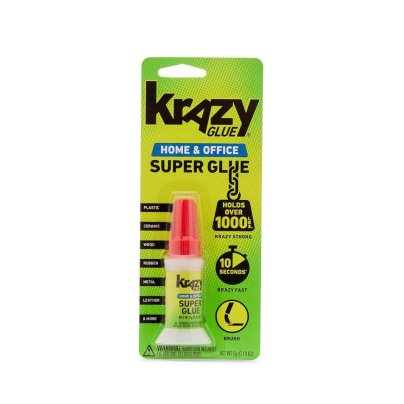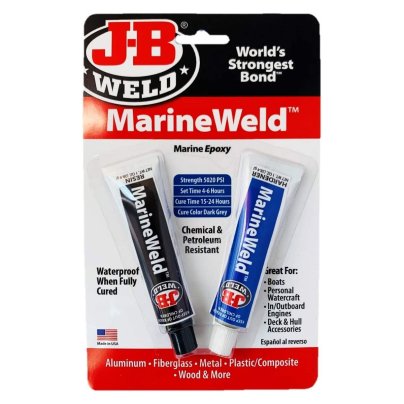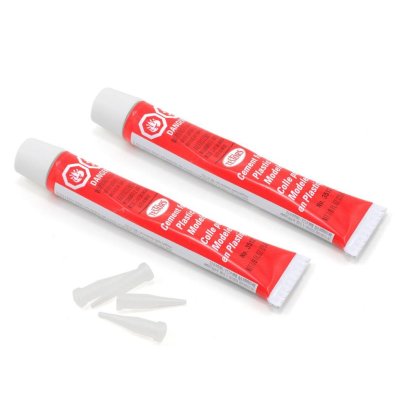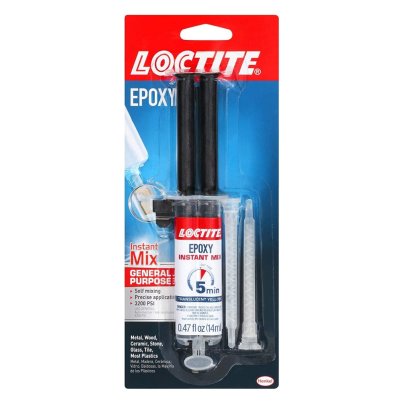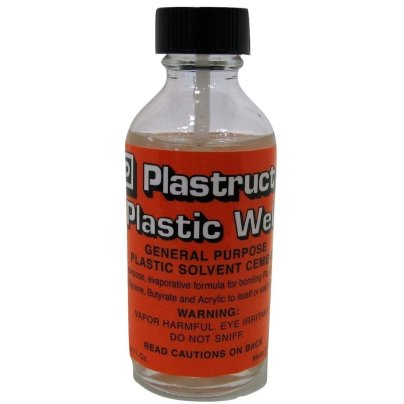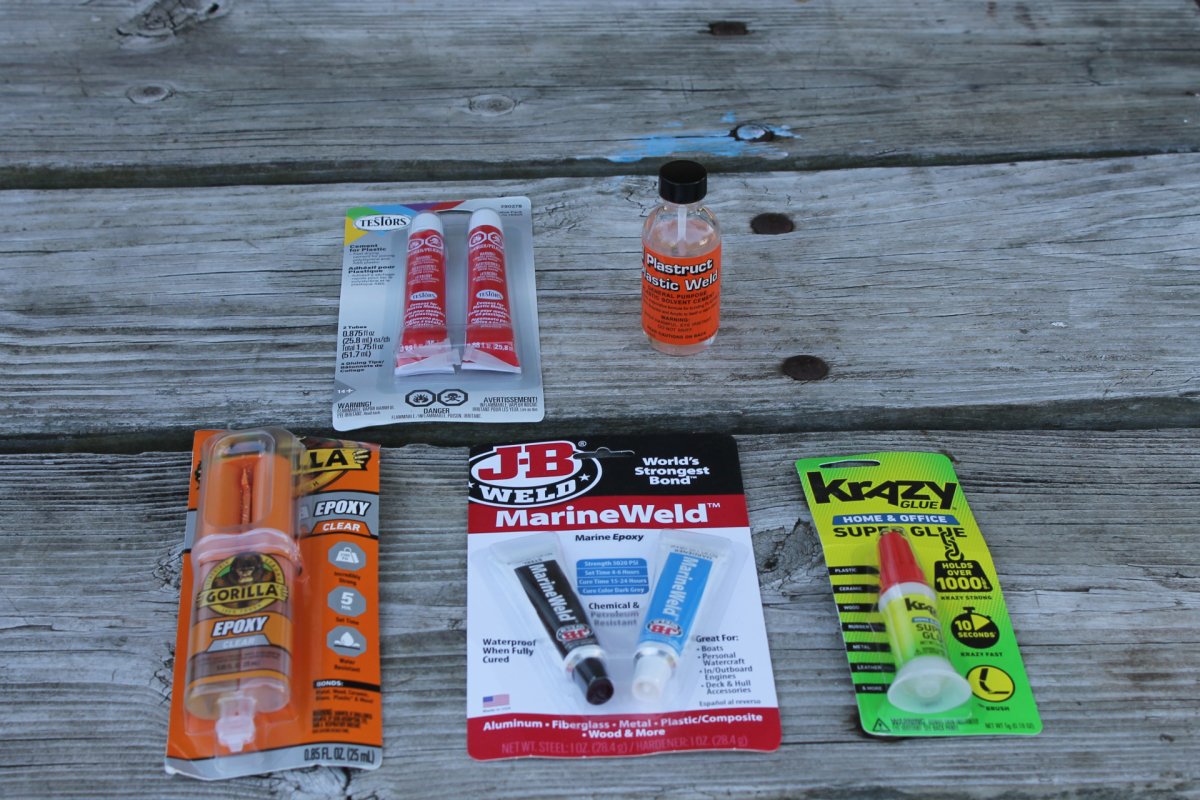

We may earn revenue from the products available on this page and participate in affiliate programs. Learn More ›
One formula definitely does not fit all when it comes to glues for plastic DIY projects. Adhesives are chemically designed to work with certain materials. Wood glue, for example, is great for carpentry but won’t be effective on metal. To find the best adhesive, we put six plastic glues to the test, using them to glue plastic to plastic as well as to several other surfaces like glass, metal, and wood.
After thorough testing, the clear winner was Gorilla Clear Epoxy. This flexible glue for plastic surprised us with its exceptional bonding capabilities, surpassing every other glue we tried on nearly all surfaces.
Trickier still, gluing plastic depends largely on the target material. A glue that works well to bond plastic to plastic may be a poor choice to adhere plastic to metal or wood. Even super glue—a popular default option for just about anything—has its limits, since cyanoacrylate, its active ingredient, doesn’t adhere well to smooth surfaces. Rather than get stuck using the wrong product, most DIYers maintain a collection of adhesives to get craft or repair jobs done right the first time. Read on to discover the best glues for plastic—all of which we’ve tested—and to learn why the choices below rate as the top options for all your plastic adhesive needs.
Glues for Plastic Comparison
| Product | Type | Compatible materials | Curing time |
| Gorilla Clear Epoxy | Epoxy | Metal, wood, ceramic, glass, plastic, and more | 24 hours |
| Krazy Glue Home & Office Super Glue | Multipurpose | Plastic, ceramic, wood, rubber, metal, leather, and more | 30 seconds |
| J-B Weld MarineWeld Twin Tube Marine Epoxy | Epoxy | Aluminum, fiberglass, plastic, composite, wood, and more | 16 to 24 hours |
| Testor Corp Cement Glue Adhesive | Cement | Plastics | 2 hours |
| Loctite Epoxy Five-Minute Instant Mix | Epoxy | Metal, glass, plastic, stone, wood, china, tile, and fiberglass | 24 hours |
| Plastruct Plastic Weld | Plastic solvent cement | Dissimilar plastics | Sets in minutes |
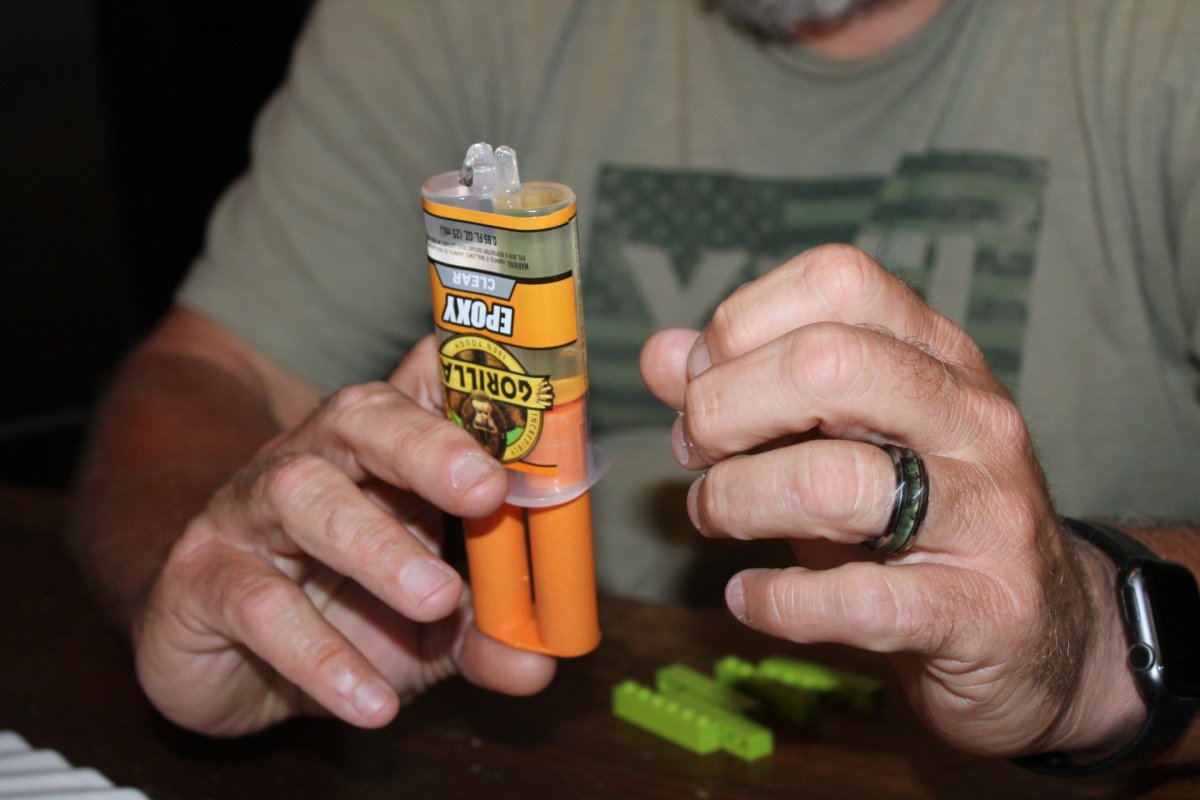
Best Overall
Photo: AmazonWhat We Like
- Bonds to nearly all surfaces
- Includes stir stick
- Inexpensive and multi-use product
- Water-resistant glue for plastic
What We Don’t Like
- Must mix before each use
- Not recommended for polyethylene or polypropylene plastic
Product Specs
- Type: Epoxy
- Compatible materials: Metal, wood, ceramic, glass, plastic, and more
- Curing time: 24 hours
Our Ratings
| Application | 4.5/5 | Adhesion | 4.8/5 | Durability | 4.5/5 | Value | 5/5 |
The Gorilla Glue Clear Epoxy comes in a syringe with two separate barrels: one side holds the epoxy resin, and the other contains the hardener. With a push of the syringe, equal amounts are dispensed, making it easy to achieve the exact ratio needed for proper bonding. The empty package can be used as a tray for mixing, and a stir stick is included.
This heavy-duty glue for plastic is designed to bond to a wide range of materials, including plastics, metals, wood, and glass. It can also work as a ceramic glue. To test its bonding ability, we glued acrylonitrile butadiene styrene (ABS) plastic to itself, as well as to wood, glass, and metal. We checked each material after the recommended 24-hour cure time, and all pieces of plastic were securely in place.
While the Gorilla clear epoxy is not recommended for polyethylene (PE) or polypropylene (PP) plastic, we decided to try it on PP anyway. We glued a piece of ABS plastic to a piece of smooth PP plastic, and the Gorilla epoxy held up well, with only one other plastic glue on our list (JB Weld Marine Weld) providing a firmer hold. Although it may not be the strongest glue for plastic to plastic bonding in these cases, we think it could be used in a pinch.
What our tester says: “The Gorilla Glue epoxy was surprisingly simple to use thanks to its syringe-style applicator that dispensed equal parts of the resin and hardener for easy mixing. It’s a good plastic adhesive that worked on nearly every surface I used it on, including hard-to-bond plastic. I also appreciated that it had a cap, allowing for multiple uses of the glue.”—Katie Barton, Product Reviews tester and writer
Get the Gorilla epoxy glue for plastic at Amazon, The Home Depot, or Target.
More Glues for Plastic Worth Your Money
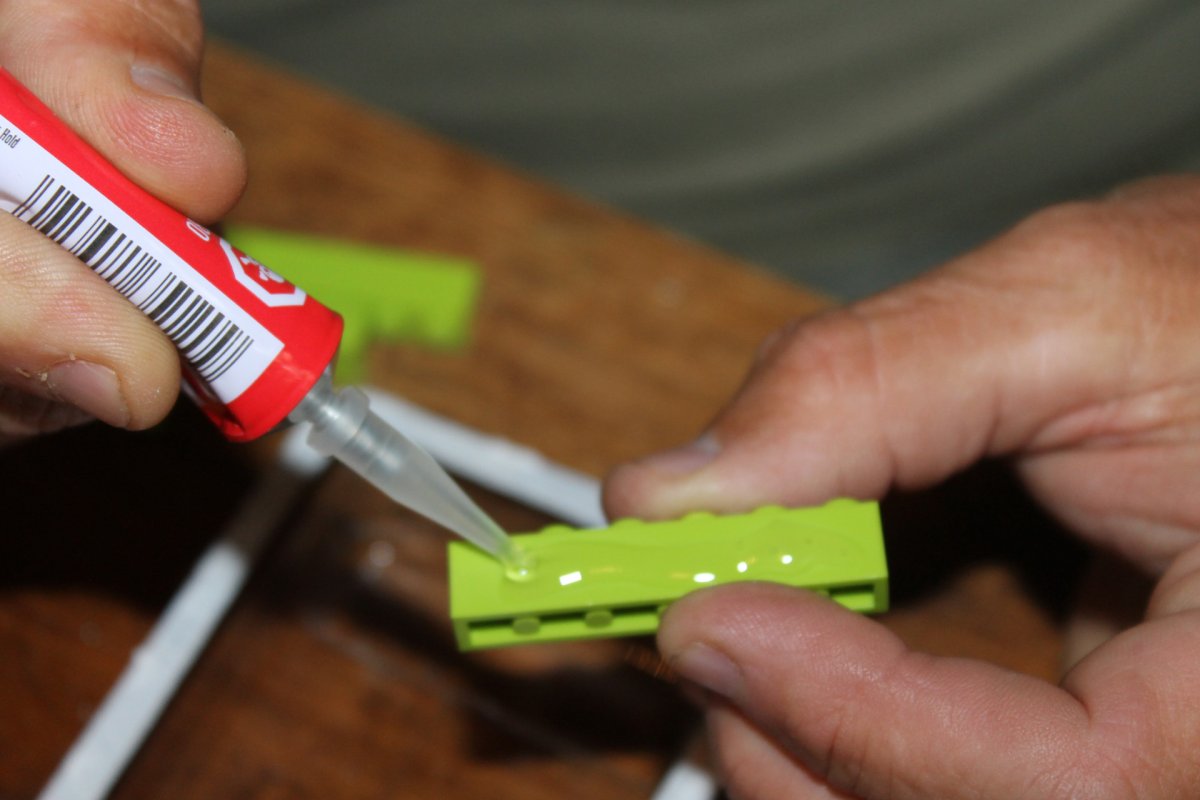
Not every type of plastic glue works with every surface. To avoid frustration, it’s essential to read the manufacturer’s recommended applications before making a purchase. Plastic is one of the more difficult materials to bond, and certain glue types work better than others.
Curing time is another important factor to consider. Some types of plastic bonding glue need 24 hours to cure and reach full strength, while others work as instant glue for plastic, bonding within seconds. Those seeking a quick-drying glue for plastic can opt for a super glue product, such as Krazy Glue, while those willing to wait the full 24-hour cure time might fare better with a plastic epoxy adhesive. We hand-tested the following options, all of which are worthy considerations depending on what you need to bond.
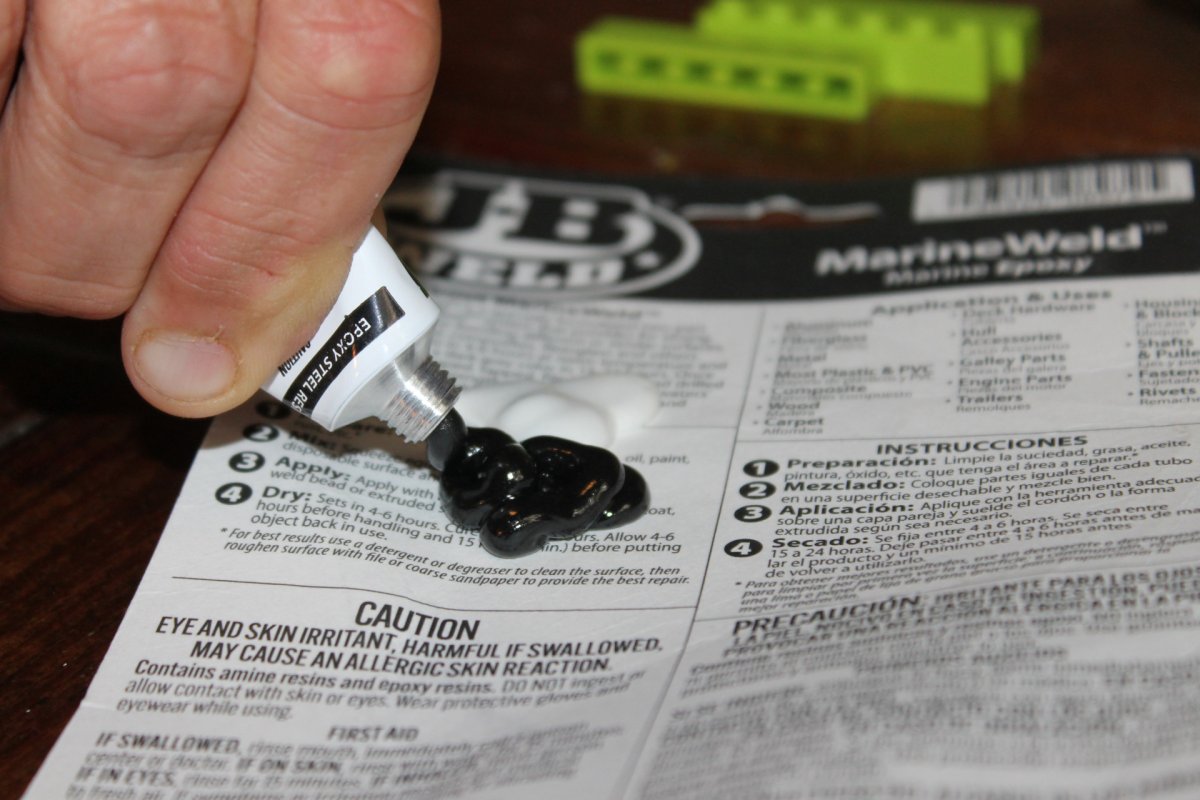
How We Tested the Best Glue for Plastic
| Products tested | 6 |
| Time spent testing | 2 days |
| Tests performed | 6 |
| Price range | $5 to $15 |
To find the strongest glue for plastic, we researched and hands-on tested some of the most popular options by top brands across a variety of categories. Our picks were selected for testing based on type, compatible materials, curing time, quantity, and ease of application. The list features different types of glue for bonding plastic, including super glue, epoxy, and model cement.
We tested each glue by applying it to compatible materials according to the manufacturer’s instructions. Our test plastics included ABS and PP. We used each glue (when applicable) to bond plastic to plastic, plastic to metal, plastic to wood, and plastic to glass. We evaluated how well each bond held, how simple or difficult the application process was, and any special features the glue may have, such as in the case of waterproof glue for plastic. The results of our testing were recorded in a standardized rubric, where we assigned each bonding adhesive for plastic a score of 1 to 5 based on application, adhesion, durability, and value. At the end of testing, we totaled our ratings to determine the winning product.
Glues for Plastic Comparison
| Product | Application | Adhesion | Durability | Value |
| Gorilla Clear Epoxy | 4.5/5 | 4.8/5 | 4.5/5 | 5/5 |
| Krazy Glue Home & Office Super Glue | 4.7/5 | 4/5 | 5/5 | 5/5 |
| J-B Weld MarineWeld Twin Tube Marine Epoxy | 4.2/5 | 4.5/5 | 5/5 | 4.3/5 |
| Testor Corp Cement Glue Adhesive | 4/5 | 4.5/5 | 4.5/5 | 5/5 |
| Loctite Epoxy Five-Minute Instant Mix | 5/5 | 4.5/5 | 4.5/5 | 4.7/5 |
| Plastruct Plastic Weld | 4/5 | 3/5 | 4/5 | 3.3/5 |
FAQs
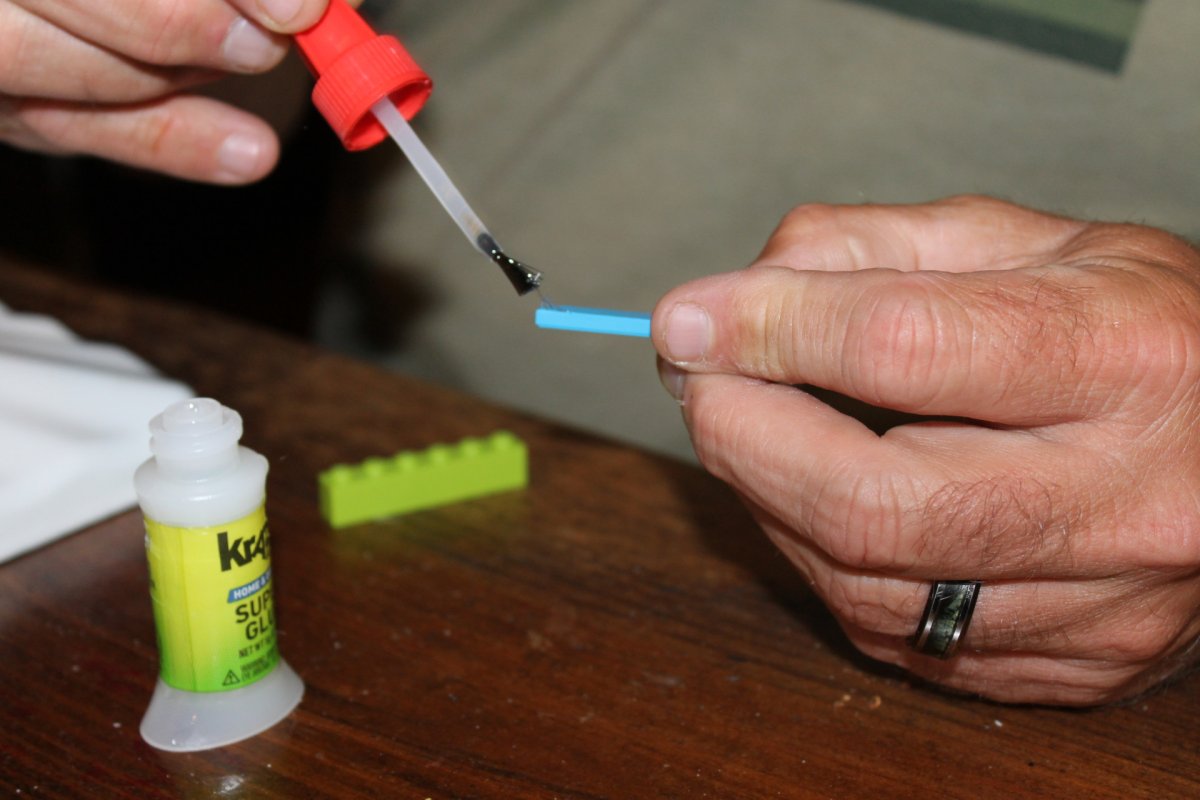
For best results, it’s worth learning more about how to properly use glues designed for bonding plastic. Find answers to some of the most common questions about these adhesives below.
Plastics are traditionally hard to glue since most have a nonporous surface that creates limited adhesion. Plastics typically come in categories 1, 2, 4, and 5, and category 1 is the hardest to glue. However, any glues that can adhere to polyethylene or polypropylene are ideal for most plastic varieties. Gluing PVC pipe often calls for PVC cement, while super glues and epoxies can bond many other common plastic types.
Soft and hard plastics can be glued together with the right plastic-to-plastic adhesive. The best option for soft and hard plastic gluing is the Loctite glue for plastic, as it is capable of adhering to almost all plastic varieties and has a water-resistant, non-shrinking epoxy formula.
Super glue (cyanoacrylate), which can bond to some plastics, belongs to a broader category of plastic glues. But there are other types of glue that fall into this category, including epoxies, model cement, and multipurpose glue (polyvinyl acetate) that can bond more plastic surfaces and so are also considered good glues for plastic.
Super glue takes seconds to dry on plastic, but typical options may take up to 24 hours to fully cure. When applying glue on plastic in machinery or aquariums, users will want to be sure to let the glue set for the full curing time before any components begin to move to prevent malfunction or breakage.
According to the manufacturer, Gorilla Glue can work well with many plastic types, but it’s not recommended for use with polypropylene or polyethylene plastics, or with rubber that has a high oil or plasticizer content. The company does make specific products for these materials, however, so you can likely find another version of this brand’s glue for rubber and smooth plastics.
If you get plastic glue on your hands, soak them in warm water and massage the skin to try to remove the glue. If this fails, apply acetone (nail polish remover) to remove the glue, making sure to wash well after use and apply lotion, as acetone is drying to skin.
Meet the Tester
Katie Barton is a writer and product tester with over a decade of experience in the field. Her goal is to help readers find the best products for their money.

